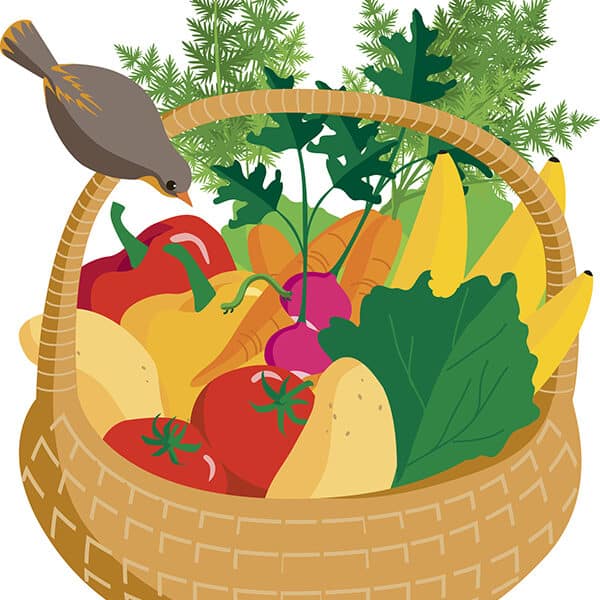
The Christmas period is often a time when more overindulgent party food and treats may be provided or brought in for residents in care homes. The start of the New Year that follows is a good time to rethink how we do things and that includes providing a healthy and sustainable diet. Systems should be in place to ensure that care homes are meeting the basic daily nutrition and hydration needs of their residents and that those with special requirements are appropriately provided for. However, dietary surveys show that on average, older people aged over 74 years in residential care consume too much saturated fat, salt and sugars, and eat too little fibre, fruit, vegetables and oily fish. Also, some of this population have intakes of certain vitamins and minerals below the recommended levels.
Food production has a big impact on our environment including greenhouse gas emissions, land and water use, loss of biodiversity, exploitation of species through overfishing, pollution and soil loss. Therefore, Public Health England (PHE) now recommends everyone, including older adults in residential care, not only has a healthy food experience to help reduce the risk of diet-related diseases, but that it is done in a sustainable way that helps protect our planet. Earlier this year PHE published catering guidance that offers practical advice for settings on how to make serving food to older people in residential care affordable, healthier and more sustainable.
How Can you Provide a Healthier, Sustainable Diet?
While we don’t have a definition of exactly what a healthy, sustainable diet looks like in practice, the Eatwell Guide is a good place to start and can be the basis of diets and menus to meet the needs of most residents, although it is not designed to meet the needs of those with special nutritional requirements. The Eatwell Guide shows the proportions in which different types of foods are needed to have a well-balanced and healthy diet, and it also highlights messages that are consistent with a sustainable diet, including choosing more plant-based protein sources and going for sustainably sourced fish. See the previous blog on Sustainable diets – healthier people and a healthier planet?
While meat and dairy produce may have a greater environmental impact, it is not suggested that they have to be eliminated completely and can be included as part of a varied diet with a range of protein sources. Meat and dairy tend to be nutrient dense and provide many important nutrients, particularly those that older people in residential care may have low intakes of such as iron and zinc. So when planning healthy, sustainable diets it is important that there is a balance and variety of foods to ensure residents get all the nutrients they need. And don’t forget that people living in care homes are advised to take a daily vitamin D supplement of 10 micrograms.
As part of providing a healthy, sustainable diet, you could also:
- Try to reduce food waste (about one-third of food produced for human consumption is wasted)
- Use seasonal produce (fruit and vegetables, meat and fish) which tends to require less input of energy, water and other resources than if produced out of season or under cover
- Choose sustainably sourced fish that helps protect our fish supplies – look for fish with a Marine Stewardship Council eco-label or see Marine Conservation Society’s Fish online guide
- Choose foods produced to higher welfare or environmental standards and those certified as fair trade
A tool that may help is Sustainable procurement: the Government Buying Standards for food and catering services (GBSF) which helps organisations meet their procurement needs in a way that benefits not only the organisation but also society and the economy, whilst minimising damage to the environment. The standards are set at 2 levels – the first level is mandatory for all central government departments and their related organisations but is encouraged for the wider public sector. The second level is voluntary, representing best practice and is aimed at any organisations concerned about sustainable procurement.
PHE has developed a range of tools to support those who commission, prepare and serve healthier, more sustainable food. These include checklists to help with the GBSF and to meet nutrient-based standards, as well as information for both commissioners and procurers.
New Year, New Beginnings….
So whilst the Christmas holiday period can be a time that healthy eating and the environment is forgotten about, let’s try and kick start 2018 in both a healthy AND sustainable way.





